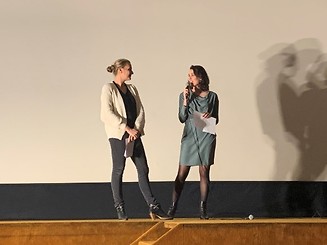12 December 2019
Brussels, 14 and 15 November 2019 UNESCO participated in the Final Conference of the Horizon 2020 project “SEnECA – Strengthening and Energizing EU-Central Asia relations”, organized by the Trans European Policy Studies Association (TEPSA) and the Centre International de Formation Européene (CIFE).
UNESCO Almaty Cluster Office Director Krista Pikkat spoke at a session on “Culture as a catalyst of social change in Central Asia”. In her intervention, Krista Pikkat stressed the instrumental role that culture plays in fostering identity in the Central Asian region. “We need to look at the importance of intangible and tangible cultural heritage from two sides: its intrinsic value and the benefits it brings to the local communities”, she said, highlighting the enabling role of culture in advancing sustainable development, as it empowers local communities and promotes livelihoods. She provided concrete examples from the EU-funded UNESCO project Silk Roads Heritage Corridors in Afghanistan, Central Asia and Iran. The project strengthens the capacities of local cultural heritage experts and connects them with the tourism industry, with a view to promoting sustainable tourism development in the region in a manner that respects and promotes the preservation of cultural heritage. The project further promotes the awareness and understanding about the common heritage in the countries along the Silk Roads. In the future, more emphasis could be placed on the development of creative industries in the region.
Other panellists included Angela Atzori, from DG DEVCO, who gave an overview of EU priorities in the field of culture in development cooperation and international relations. H.E. Dilyor Khakimov, Ambassador of Uzbekistan to the Benelux Countries, stressed that culture, education and institutional capacity development were keys to sustainable development in Uzbekistan.
On the last day of the Conference, a screening of the Kyrgyz film “The Song of the Tree” was organized. In her opening remarks, UNESCO Liaison Officer Adeline Hulin briefly presented UNESCO’s work on culture and sustainable development.
The conference “What Future for EU-Central Asia Relations?” gathered academics, government officials, practitioners and experts from Europe and Central Asia in order to discuss the future of EU-Central Asia relations. H. E. Peter Burian, the EU’s Special Representative for Central Asia was among the conference participants, as well as several ambassadors and representatives from the Central Asian countries.
For more information about the event, please visit here.
Permanent link: http://en.unesco.kz/culture-as-a-catalyst-of-social-change-in-central-asia

